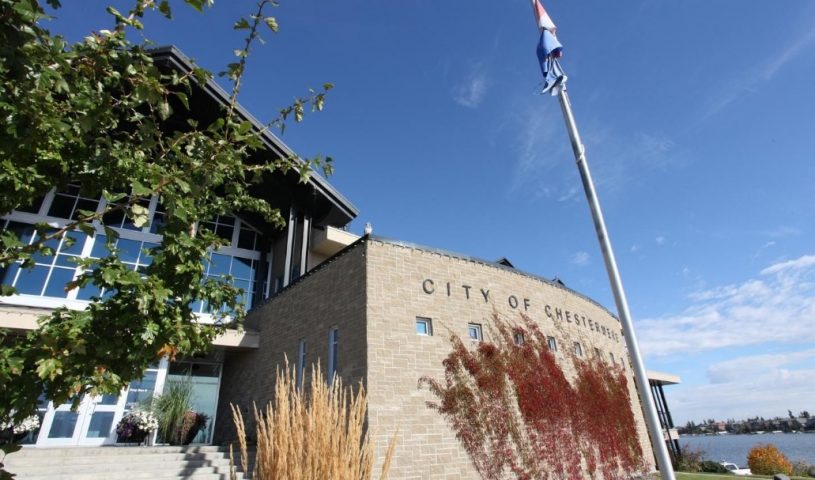Chestermere to pilot innovations in wastewater processing


Posted in: News Item
Date Posted: 2020-09-16
Organization Name: City of Chestermere
Most of us don’t think twice about what happens when we flush the toilet, but for the folks at MAGNA Engineering and Eco-Growth Environmental Inc., they see it as a fountain of opportunity.
Currently, most sewer treatment in North America is done through large scale, chemical-based processes, but these two companies are seeking to change that. By partnering with the City of Chestermere, they are piloting new, green approaches that will treat sewage through engineered wetlands and dehydration technology.
“In Chestermere, we are all about seeking to be and do amazing things,” says Chestermere Mayor Marshall Chalmers. “For that reason, we are very happy to partner with MAGNA Engineering and Eco-Growth Environmental to find new, environmentally sustainable ways to handle municipal waste as well as support local business initiatives. We are hopeful that upon a successful pilot, we can help set new standards for environmental stewardship in municipalities across Canada.”
The pilot program in Chestermere is located at the City’s public works building. In the past, that building’s sewage was flushed into a septic tank and then transported for treatment.
With the new system, treatment is completed onsite. The first step is to separate liquids and solids through a micro-screening process.
From here, the liquid component of the waste passes through a set of sub-surface wetlands that treat the liquid waste to raw water quality that can be safely released to the natural environment, or safely re-used as a raw water source for irrigation, process water, or other uses.
The solid waste is then dehydrated by Eco-Growth Environmental’ s Eco-Growth Organic Reactors that remove moisture, kill pathogens and reduce odour. The dried biosolids can then be introduced as a heat source in the Eco-Boiler, which, at more than 1400 degrees Fahrenheit, reduces the material to ash. It can be used as fertilizer or a component in road building material.
“We all have energy coming out of our butts,” says “Glen Smith, Vice President/Director of Eco-Growth Environmental. “Our vision is to put that to use. Our innovative technology transforms raw, organic waste into biofuel so communities can get the most out of their waste.”
Eco-Growth has already been converting organic food matter into biofuel and current clients include the Fairmont Lake Louise and the Canmore Grizzly Paw Brewing Company. By partnering with MAGNA, they can pilot one of two sites in Alberta to test the conversion of human biosolids.
The pilot project in Chestermere was installed and tested earlier this summer and will be operational on September 10. Regular water samples will be collected and tested by a third party to determine the new system’s efficiency and effectiveness.
“In Europe, small communities have been using engineered wetlands to treat wastewater since the 1920s, but the technology has not been widely adopted across North America. We are changing that trend,” says Jennifer Massig, owner of MAGNA Engineering.
MAGNA has gained the support of Alberta Innovates, the National Research Council of Canada and the Canadian Environmental Technology Advancement Corporation for this pilot to ensure compliance and that all end products meet the regulatory requirements.
Massig says that “Municipalities across Alberta are searching for a better wastewater treatment solution that keeps operation simple but results in high quality treated water. Better treatment means that our rivers and lake stay cleaner, which keeps our communities safe.”
“The hope is that a successful pilot project of converting human waste into fuel would mean that we can start to change how the world deals with biosolids and that Alberta can be a leader in green technology,” adds Smith. “That would mean reducing the burden on the tax base, finding sustainable ways to power and heat community facilities, reducing waste going to landfills and creating a new revenue source for the community.”
Following the pilot, which is expected to last until at least December 2020, the system will be reviewed and refined for larger-scale projects and testing.
